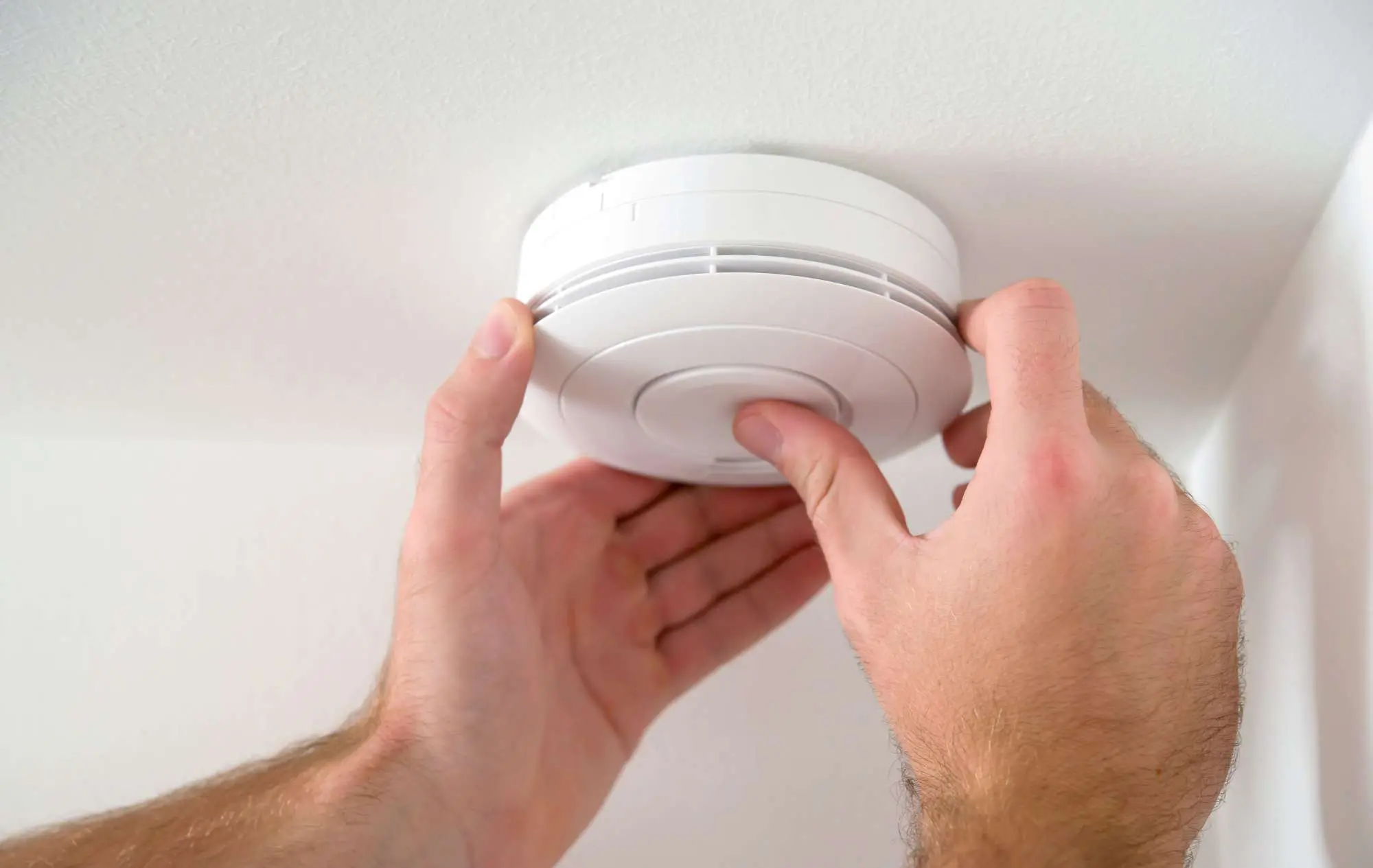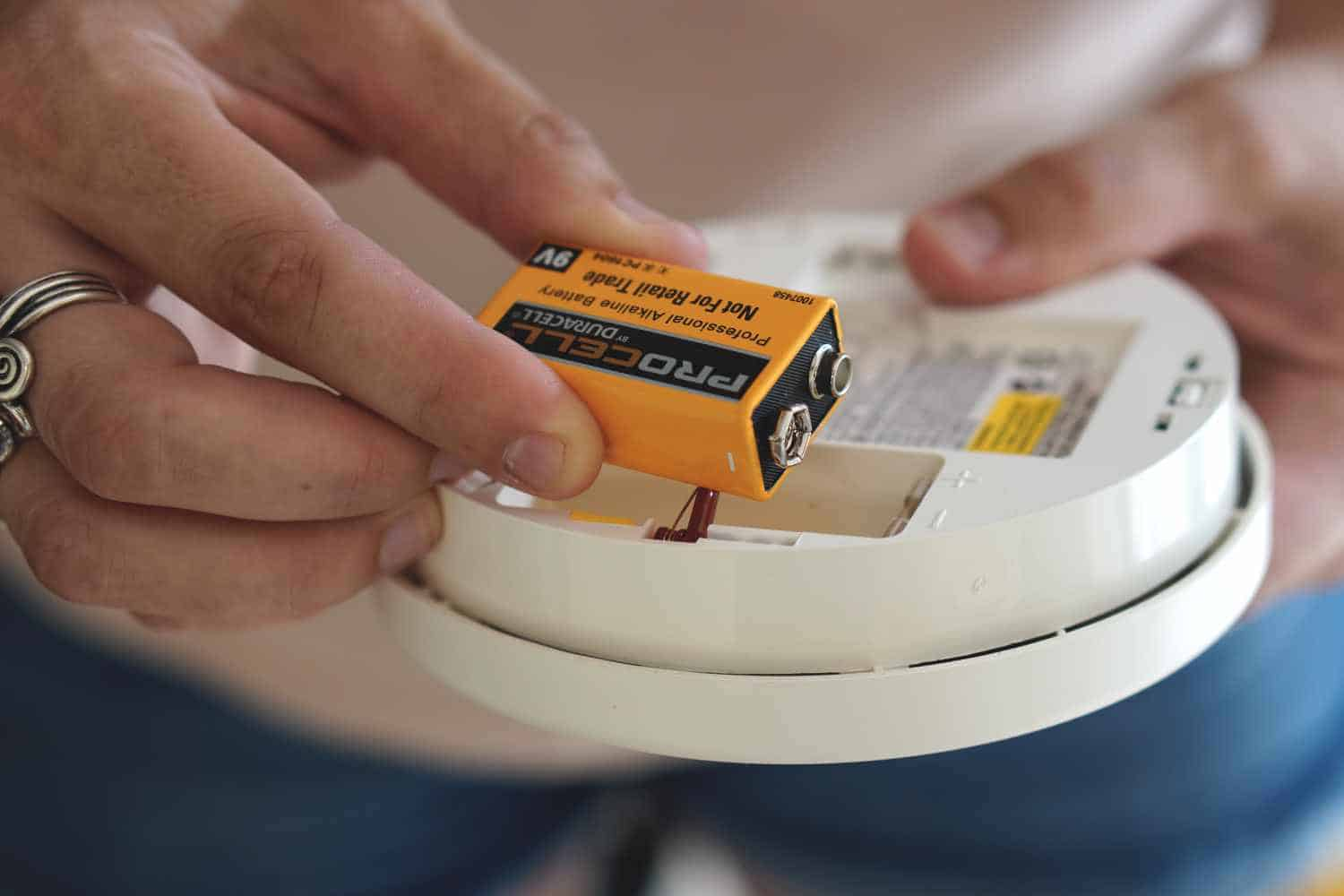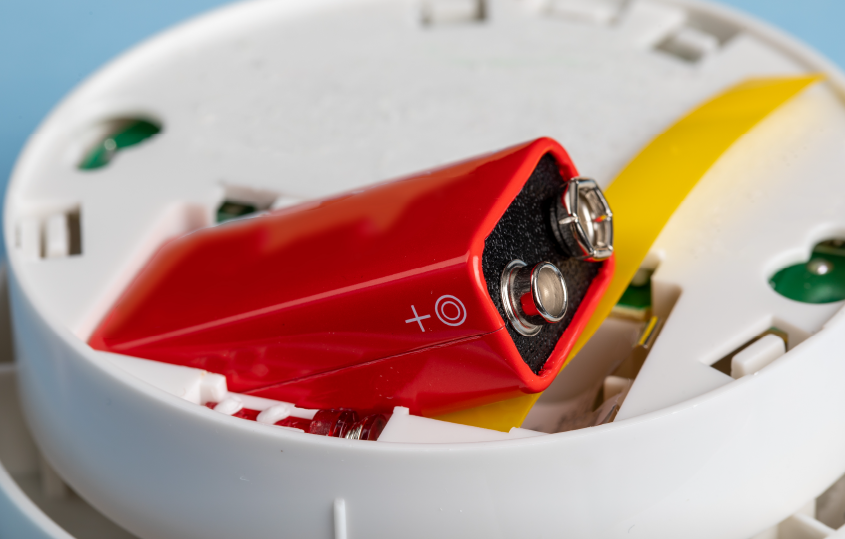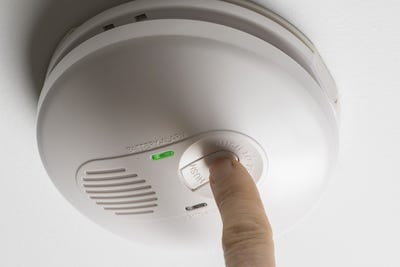
Why Is My Smoke Alarm Beeping? | How To Stop The Chirping

Imagine it's the middle of the night, and suddenly, the piercing sound of your smoke alarm jolts you from sleep—not because there's a fire, but because the alarm just won't stop beeping. It's frustrating, isn't it? This unexpected noise often points to a few usual suspects: a Low Battery in battery-operated smoke alarms, dirt accumulation, or even age-related malfunction in your fire alarm system.
First, let's identify the culprit. Is your smoke alarm chirping sporadically or does it beep at regular intervals? This pattern can tell you a lot about what's wrong. For instance, battery-operated smoke alarms typically emit a chirping sound to alert you that the battery is low and needs to be replaced. Knowing this simple tip can save you from unnecessary headaches and ensure your fire alarm system continues to function as your first line of defense against potential fire hazards.
So, how do you stop the chirping and regain your peace of mind? Stay tuned as we dive into troubleshooting steps that will guide you through silencing your beeping smoke alarm effectively.
Common Reason for Smoke Alarm Chirping
Most smoke detectors are designed to alert you not just when they've detected smoke, but also when there are less obvious issues at play. If you find your fire alarm beeping without a smoke-triggered cause, it could be due to several common reasons. Here are the key ones to consider:
The detector's batteries may be dead
When your smoke detector starts chirping, it’s often a sign that the batteries are failing. Regularly replacing the batteries can prevent this common issue from escalating into a situation where the detector is disabled, ensuring it remains active and effective in detecting real threats.

Neglecting to replace old batteries can lead to your smoke detector being temporarily disabled, which is risky in an actual emergency. Always keep spare batteries at hand to maintain the functionality and safety of your smoke detector.
There's smoke in your home
Accidental activation of your smoke detector by harmless sources like cooking smoke or steam is common. To prevent this, ensure areas around the kitchen or bathroom are well-ventilated to avoid the build-up of smoke that can trigger the alarm.
Using compressed air to clean your smoke detector is an effective way to maintain its sensitivity and prevent it from being disabled by dust or other particles. This simple maintenance task can help differentiate between real threats and everyday steam or smoke.
If your smoke detector frequently activates without visible smoke, it might be overly sensitive or malfunctioning. Upgrading to a new smoke detector with smarter technology can reduce false alarms and increase reliability in detecting actual fire-related incidents.
Beeps Once Every 30 Seconds or Minute
Beeping at regular intervals often indicates dead batteries. It's essential to replace them to ensure the smoke detector continues to function properly and remains effective in alerting you to real dangers, not just battery failures.
Frequent beeps can also signify that the alarm's components are wearing out or are faulty. Regular testing and maintenance can help identify issues that might prevent the smoke detector from functioning properly and safeguarding your home.
Understanding the different beep patterns is crucial, as each pattern could indicate a different issue—from dead batteries to serious malfunctions. Consult your detector's manual to decode these signals and take appropriate action to maintain your safety.
The alarm may need to be replaced
Smoke detectors have a limited lifespan, typically between 8 to 10 years. If your device is nearing this age or beeping without cause, it might be time for a replacement to ensure continuous protection.
Continuous malfunctioning, despite battery changes and maintenance, might indicate that the alarm's components are degraded. Replacing your old smoke detector with a new one ensures you have reliable technology guarding against fires.
What Do the Different Types of Smoke Detector Beeps Mean?
Understanding the different types of beeps from your smoke detector can save lives. A single chirp usually signals dead batteries, while a consistent chirping could indicate malfunction or an end-of-life warning for the device.
Each beep pattern has a specific meaning, typically outlined in the user manual. Recognizing these can help you quickly diagnose issues like dead batteries or component failures, ensuring the detector functions properly.
Clean the Fire Alarm's Dirty Sensing Chamber
Dust and debris can accumulate in the sensing chamber of most smoke alarms, leading to false alerts or impaired function. Regular cleaning ensures that your smoke detector remains sensitive to real fire signals while avoiding unnecessary noise.
For optimal performance, it’s essential to keep the fire alarm’s sensing chamber clean. This prevents the particles from falsely triggering the alarm, ensuring it functions properly only when true dangers are detected.
Remove the Smoke Alarm Battery Pull Tab
New smoke alarms come with a battery pull tab that must be removed before the device becomes operational. Ensuring this tab is fully removed allows the alarm to function properly, securing your home effectively.

If your smoke alarm isn't working after installation, check to see if the pull tab has been completely removed. This small oversight can prevent most smoke alarms from activating in the event of smoke detection.
The smoke detector's battery cover is open
An open battery cover can compromise the functionality of your smoke detector. Ensure the cover is securely closed to maintain the integrity of the battery connection, which is crucial for the detector’s operation.
Sometimes, the simplest issues like an open battery cover can prevent a smoke detector from functioning. Regular checks and maintenance can ensure that such small but critical components are correctly in place.
Why Is Your Hard-Wired Smoke Detector Beeping?
Hard-wired smoke detectors may beep due to a power outage, triggering the backup battery to keep the device operational. This switch can sometimes cause unexpected beeping, indicating the detector is still active but relying on backup power.
If your hard-wired smoke detector beeps intermittently, it could be due to issues in the backup battery connection or its nearing expiration. Ensuring the backup battery is fresh and properly installed can prevent your smoke detector from becoming disabled during crucial times.
Close the Fire Alarm Battery Drawer
A loosely closed battery drawer can cause your smoke detector to beep, signaling an incomplete circuit. Ensure the drawer is shut tightly to maintain the unit's operational integrity and prevent false alarms.
Failure to properly close the fire alarm battery drawer may lead to intermittent beeping, suggesting a problem with the battery connection. This simple yet crucial step helps keep your smoke detector ready and responsive.
Incorrect Smoke Detector Placement
Placing smoke detectors near kitchens or bathrooms can lead to frequent false alarms due to steam or cooking smoke. To prevent your smoke detector from being disabled unnecessarily, consider relocating devices away from these areas.
Incorrect placement of smoke detectors can also compromise their effectiveness during a power outage, as backup batteries may be drained more quickly by frequent false alarms. Proper placement is crucial for ensuring the longevity and reliability of your smoke detector.

How to Stop a Smoke Detector From Beeping
To stop a smoke detector from beeping, first check if it’s a dead battery causing the issue. Replace the battery promptly to restore peace and ensure the alarm functions correctly during actual emergencies.
If the smoke detector continues to beep after a battery change, verify that the battery backup is installed correctly and functioning. A faulty backup can lead to continuous beeping, even when the primary power source is stable.
Check for Smoke Alarm Temperature Fluctuations
Temperature fluctuations can affect smoke detector sensitivity, causing false alarms or beeping. Ensure your smoke detector is placed away from HVAC vents, windows, or any sources of drastic temperature changes.
Calibrating your smoke detector to account for normal temperature fluctuations within your home can prevent false alarms. This calibration ensures the device only alerts you to real threats, rather than normal environmental changes.
Troubleshooting a Smoke Detector That Keeps Beeping
When troubleshooting a beeping smoke detector, first rule out a dead battery, a common cause that is easy to fix. Replace it with a new one to ensure your detector has the power it needs to function effectively.

If replacing the battery doesn’t help, inspect the smoke detector for signs of an electrical fire or other damages. Such issues can cause continuous beeping and may require professional intervention to ensure the safety of your home.
Replace the Smoke Alarm Batteries
One of the simplest solutions to a smoke detector problem is replacing the batteries. Often, a chirping noise indicates that the batteries are nearing their end of life and need to be replaced to ensure the detector continues working properly.
Consistently replacing old batteries can preemptively solve many common smoke detector issues, preventing the device from emitting unexpected chirping noises that can disrupt your household.
Smoke Detector Replacement and Repair Services
If your smoke detector continues to make a chirping noise despite new batteries, it might indicate a deeper smoke detector problem. In such cases, it may be wise to seek professional replacement and repair services to ensure the device is working properly.
Professional services can diagnose and fix complex issues with your smoke detector that aren’t resolved by simple battery changes. These experts ensure that your device is both effective and compliant with safety standards.
What Is the Difference Between a Battery-Operated and a Hard-Wired Smoke Alarm?
Battery-operated smoke alarms function independently through batteries housed in a battery compartment, allowing for easy installation in locations without existing wiring. These units require routine checks to replace the batteries, ensuring they remain functional during emergencies.
Hard-wired smoke alarms draw power from your home’s electrical current, offering a consistent power supply with a backup battery in place for power outages. This interconnection across alarms enhances overall safety, as all alarms will sound simultaneously if one detects smoke.
FAQs About Chirping Smoke Detectors
What causes a smoke detector to chirp even after replacing the batteries? Often, this can be due to an improperly seated new battery or an issue within the battery compartment itself. Ensure the battery is installed correctly and that the compartment is clean and free from debris.
Can humidity affect my smoke detector? Yes, high humidity can lead to condensation inside the detector, which might cause short circuits or activate the alarm. Using a dehumidifier or improving ventilation can help mitigate these false alarms.
Battery-Operated Smoke Detectors
Battery-operated smoke detectors are valued for their portability and ease of installation, as they do not require connection to household electrical currents. Ensure the battery compartment is clean and the contacts are intact when installing a new battery.
The primary limitation of battery-operated smoke detectors is the need for regular battery replacement. It is essential to use high-quality batteries and replace them before they expire to maintain optimal performance.







